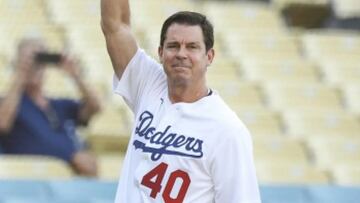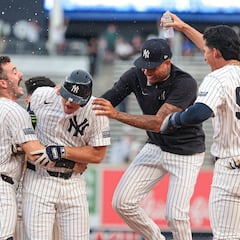Billy Bean, second MLB player to come out as gay, dies at 60: What was the cause of death?
Perhaps known for his contribution off the field as much as on it, the former Tigers outfielder leaves behind an indelible mark on the sport that he changed.


When we look at the body of work achieved by the former player turned league executive, it’s hard not to feel a sense of loss. Indeed, Billy Bean was someone who worked tirelessly to create a greater level of equality and inclusion in the sport of baseball.
Billy Bean has passed away
Major League Baseball and its fans are in mourning this week after reports confirmed the passing of Billy Bean at the age of 60 years old. Bean, who became the second former MLB player to come out as gay in 1999 would later serve as the sport’s senior vice president for diversity, equity, and inclusion. It is understood that he died at home on Tuesday after a yearlong battle with myeloid leukemia.
We are deeply saddened by the passing of our friend and colleague Billy Bean, MLB’s Senior VP for Diversity, Equity, & Inclusion and Special Assistant to the Commissioner. Billy, who fought a heroic year-long battle with Acute Myeloid Leukemia, was 60.
— MLB (@MLB) August 6, 2024
Over the last 10 years,… pic.twitter.com/dCfFM6hQlE
“We are deeply saddened by the passing of our friend and colleague Billy Bean, MLB’s Senior VP for Diversity, Equity, & Inclusion and Special Assistant to the Commissioner,” the MLB wrote. “Over the last 10 years, Billy worked passionately and tirelessly with MLB and all 30 Clubs, focusing on player education, LGBTQ inclusion, and social justice initiatives to advance equality in the game for all,” the league continued, prior to sharing a quote from Commissioner Rob Manfred, who stated Bean was “One of the kindest and most respected individuals I have ever known [and someone who] made Baseball a better institution, both on and off the field.”
Related stories
A native of California, Bean played for a total of six seasons in MLB from 1987 to 1995, making his debut with the Detroit Tigers in a four-hit performance that tied a record for a player in his first game. Bean also spent time on the rosters of the Los Angeles Dodgers and San Diego Padres. Yet, it goes without saying that Bean will truly be remembered for the moves he made off the field as he coped with and eventually overcame insecurities surrounding his sexuality. Indeed, it was a struggle that led to his divorce shortly after his father’s death in 1991. “Something was just drawing me to that other side,” he told The New York Times. “I’ve had good sex with women and good relationships, but something was missing, even with my wife. I wasn’t fulfilled. I had a fear of not being understood, not being totally accepted. I was looking for a soul mate, someone I could let my guard down with. I only found that with men.”
MLB Tonight reacts to the passing of Billy Bean. pic.twitter.com/HtXXKgfzeu
— MLB Network (@MLBNetwork) August 6, 2024
Following a stint in Japan, during which time he lived with a male partner, Bean joined the San Diego Padres in 1993. Two years later and just before the start of the 1995 season, his partner died and understandably, it was a turning point. “Think if you lost your wife or partner, went to work and didn’t tell anybody?” he told PEOPLE. “But I thought the world would stop spinning if I came out.” Bean retired after that season. What followed was a period of reconstruction which saw him write a book entitled “Going the Other Way”, while taking on the role of keynote speaker at a number of events. Then, in 1999, Bean publicly came out and in the process became the second former MLB player to do so after Glenn Burke did so in 1982. “I’ve learned making an impact on someone’s life is more important than a lifetime .300 batting average,” Bean told the Los Angeles Times in 2001. “The more positive role models that people see, the less sensational the whole idea of diverse sexuality becomes.”


Complete your personal details to comment